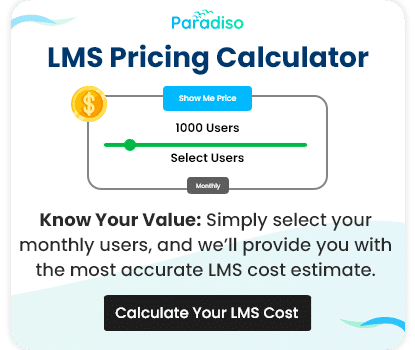
LMS for Small Business – Power Up Your SMBs
In today’s rapidly evolving business landscape, continuous learning and development are no longer just desirable – they’re essential for staying competitive. Small and medium-sized businesses (SMBs) can significantly benefit from implementing a robust Learning Management System (LMS).
An LMS is a centralized platform that streamlines the creation, delivery, and tracking of educational content within an organization. For SMBs, this translates to a powerful tool for enhancing employee skills, boosting productivity, and fostering a culture of continuous growth.
This blog post will explore the key aspects of LMS for small businesses, including its benefits, essential features, and practical tips for successful implementation. Whether you’re looking to improve employee onboarding, enhance customer service, or simply upskill your workforce, an LMS can be an asset for your SMB’s success.
Benefits of learning management system for small business
- Improved Employee Onboarding: Streamline onboarding processes, ensuring new hires quickly grasp company culture, policies, and procedures.
- Enhanced Employee Training: Deliver targeted training programs, from product knowledge to industry best practices, to upskill your workforce.
- Increased Productivity: Empower employees with the knowledge and skills to perform their roles more efficiently and effectively.
- Boosted Employee Engagement: Foster a culture of continuous learning, motivating employees to grow and develop within their roles.
- Improved Customer Service: Equip customer-facing teams with the knowledge and skills to provide exceptional service, enhancing customer satisfaction.
- Reduced Training Costs: Minimize the time and resources spent on traditional training methods, such as instructor-led sessions.
- Better Data-Driven Decisions: Track employee progress, identify knowledge gaps, and measure the effectiveness of training programs.
- Improved Compliance: Ensure compliance with industry regulations and legal requirements through targeted training and record-keeping.
- Increased Employee Retention: Invest in employee development to improve job satisfaction and reduce employee turnover.
- Enhanced Company Culture: Promote a culture of learning and growth, attracting and retaining top talent.
Important features to consider in small business LMS
Choosing the right LMS for your small business is crucial for its success. Here are some key features to consider:
- User-Friendly Interface: Easy navigation for both administrators and learners.
- Course Creation Tools: Robust tools for creating engaging and interactive training content.
- Reporting & Analytics: Track learner progress, identify knowledge gaps, and measure training effectiveness.
- Mobile Accessibility: Allow employees to access training anytime, anywhere.
- Scalability: LMS should grow with your business as your training needs evolve.
Challenges of LMS for small business in 2025
While LMSs offer numerous benefits, small businesses face unique challenges in their implementation:
- Limited Budget: Investing in an LMS and creating high-quality training content can be a significant financial burden for small businesses with limited resources.
- Time Constraints: Small businesses often have limited time and resources to dedicate to LMS administration, content creation, and employee training.
- Lack of Internal Expertise: Many small businesses lack the in-house expertise to effectively manage an LMS, including instructional design, technical support, and data analysis.
- Employee Engagement: Motivating employees to participate in online training and complete courses can be challenging, especially with competing priorities.
- Data Security and Privacy: Ensuring the security and privacy of sensitive employee data within the LMS is crucial, requiring robust security measures and compliance with relevant regulations.
How to choose the best LMS for SMBs in 2025?
Choosing the right Learning Management System (LMS) is crucial for any small business looking to enhance employee training and development. By carefully considering your specific needs and following a structured approach, you can select an LMS that effectively supports your training goals and drives business growth.
- Define Your Needs: Clearly outline your training goals, target audience, and budget.
- Research & Compare: Explore different LMS providers, and compare features, pricing, and customer reviews.
- Request Demos: Schedule demos with shortlisted vendors to experience the platform firsthand.
- Prioritize User Experience: Choose an LMS with a user-friendly interface for both administrators and learners.
- Read Customer Reviews: Pay attention to customer reviews and testimonials for insights into real-world experiences.
- Conduct a Pilot Program: Test the LMS with a small group of employees before full-scale implementation.
Conclusion
An LMS can be a game-changer for small businesses, fostering a culture of continuous learning and driving significant improvements in employee performance and overall business success. By strategically implementing an LMS, small businesses can unlock their full potential and thrive in today’s dynamic and competitive market.











